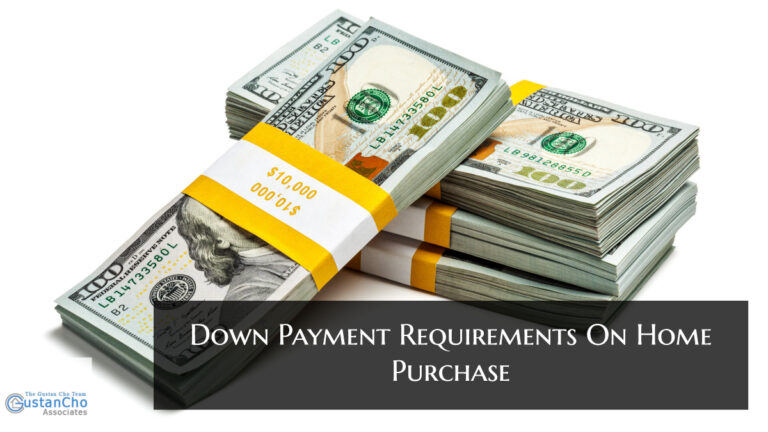FNMA Guidelines on Judgments For Conventional Loans
This guide will cover FNMA guidelines on judgments on conventional loans. Conventional loans have higher credit and income standards than government-backed mortgage programs for a prospective homeowner pursuing homeownership. There is nothing as complex during the process as getting the right mortgage or, better yet, qualifying for one. There are many mortgage options available. Each mortgage loan program comes with its guidelines and requirements for approval. Conventional loans are the nation’s most popular mortgage program.
Private mortgage insurance (PMI) is usually required when the down payment on a home is less than 20% of the purchase price. Private mortgage insurancefor borrowers with under 680 credit scores will be higher than FHA annual mortgage insurance premium of 0.55%. The cost of mortgage insurance is added to the monthly mortgage payment, increasing the overall expenses for borrowers.
While these mortgages have stricter requirements compared to other available options, they also provide the advantage of offering the best interest rates. Therefore, individuals who have faced previous financial setbacks leading to a judgment may encounter challenges when attempting to qualify for a mortgage. Nonetheless, overcoming these obstacles is not impossible, as approaches and strategies are available to help you navigate these financial challenges. In this article, you will discover strategies and comprehensive information about qualifying for conventional loans per FNMA guidelines on judgments.
What Are conventional loans?
Conventional loans are not backed by any government agency but are originated by private lenders. A conventional loan refers to a mortgage that conforms to Fannie Mae or Freddie Mac agency guidelines. It is not backed, insured, or guaranteed by federal agencies like the FHA, Federal Housing Administration, the Department of Veterans Affairs (VA), or the United States Department of Agriculture (USDA). Instead, these loans are offered and backed by private lenders, which include banks, credit unions, and mortgage companies. Also, they adhere to the guidelines and standards set by Fannie and Freddie Mac, which are the two government-sponsored agencies that purchase mortgages from lenders. Since the government does not back these loans, lenders impose stricter requirements to minimize the risk of default.
Comparison of conventional loans over other Mortgage Options
Even though they have stricter requirements, there are several benefits you stand to gain once you are eligible for a conventional mortgage. Benefits of conventional versus government-backed loans include flexibility on the types of properties you can purchase. For starters, conventional loans offer more flexibility in terms of property types you can buy, including primary residences, investment properties, and second homes, explains John Strange, a senior loan officer with Mortgage Lenders For Bad Credit:
You can also use them on homes, such as single-family homes, condominiums, and multi-unit properties. In addition, they also allow for refinancing options, which means that even with an existing mortgage, you can get the mortgage, so long as you meet all the requirements.
Conventional loans often provide competitive interest rates, especially for borrowers with solid credit scores. Mortgage rates on conventional loans are very credit score driven. Borrowers with under 680 credit scores will most likely get priced at a higher rate on conventional loans. Mortgage rates on government-backed loans are substantially lower than conventional loans, especially for borrowers with lower credit scores.
Fannie Mae and Freddie Mac Guidelines on Conventional Loans
Conventional mortgages have stricter credit requirements than government-backed mortgages. Government agencies like FHA, VA, or USDA do not back conventional loans. Conventional loans need to conform to Fannie Mae or Freddie Mac Guidelines. This is why conventional loans are referred to and called conforming loans.
Lenders sell conventional loans after it funds the secondary mortgage market. The secondary mortgage market investors will not buy conventional loans if the loans do not conform to Fannie Mae or Freddie Mac Guidelines. Fannie and Freddie are the two largest buyers of mortgages in the secondary market.
For instance, the lender wants a solid credit history, a good credit score – usually 620 or higher, and a reasonable debt-to-income ratio. Conventional loans generally require a larger down payment, which is aimed at helping you secure better interest rates and avoid private mortgage insurance (PMI). While the minimum amount can vary, it is often around 5% to 20% of the property’s buying price.
FHFA Loan Limits on Conventional Loans
The loans also come with limits usually set by Fannie Mae and Freddie Mac. These limits vary by location and are adjusted yearly to reflect the changes in the housing market. If a borrower is looking to finance a home above the loan limit, one may need to make a larger down payment or consider other loan options.
If you make a down payment of less than 20% of the property’s price, you must pay for private mortgage insurance (PMI). This insurance cover aims to protect the lender in case the borrower defaults. However, if the borrower builds sufficient equity in the home, the lender may cancel the insurance premiums.
Many homebuyers needing a higher-priced home may need to opt for a conventional rather than an FHA loan. The maximum FHA loan limit for single-family homes in common areas in the United States is $472,030. The maximum loan limit for conventional loans is substantially higher. The loan limit for conventional loans in 2023 is $726,200 on single-family homes. You cannot finance second homes or investment properties with government-backed mortgage loans. Conventional loans allow for the financing of second homes and investment properties. In the following paragraphs, we will cover FNMA guidelines on judgments on conventional loans.
Fannie Mae Guidelines on Private Mortgage Insurance
Unlike FHA loans, where a borrower requires an upfront mortgage insurance premium, conventional mortgages don’t have a similar requirement as insurance premiums are required when a borrower doesn’t have a sufficient down payment. Therefore, all this reduces the upfront costs for borrowers.
FNMA Guidelines on Judgments For Conventional Loans
There are also several limitations that you may need to be aware of about conventional loans. They include the following: Stringent requirements: Conventional loans have stricter credit and financial requirements than government-backed mortgages.
Borrowers with poor credit scores or higher debt-to-income ratios may encounter many challenges when qualifying for a conventional loan. Conventional loans have larger down payment requirements for homebuyers, second homebuyers, and borrowers of investment properties.
The requirement for a larger down payment can be a significant barrier for some borrowers, especially first-time homebuyers or those with limited savings. Not to mention that saving for a substantial down payment can take time, which, in turn, delays the homeownership process. Private mortgage insurance is required on conventional loans for homebuyers with less than a 20% down payment.
Understanding judgments
Having discussed conventional loans, let’s first gain an understanding of judgments before exploring their potential impact on your eligibility for traditional loans. Judgments are legal rulings or court orders that establish an individual’s responsibility to repay a debt or resolve a dispute. Alex Carlucci explains what judgments are and the impact it has on consumers’ ability to qualify for a mortgage loan:
Judgments are awarded by the courts when a creditor or a party involved in a legal case pursues legal action to collect a debt or resolve a disagreement. Creditors who sue defendants in court to get awarded a judgment. Judgments can arise from various situations, including unpaid debts, breach of contract, or failure to meet financial obligations.
Per FNMA Guidelines on judgments, judgments can impact your creditworthiness, hence your ability to secure a loan. Judgments result from lawsuits filed by creditors or individuals seeking to collect outstanding debts. Once the court rules in the creditor’s favor, a civil judgment is issued, which outlines the amount owed. When you are issued this judgment, your credit scores will be affected, making future attempts to apply for a mortgage more difficult.
FNMA Guidelines on Judgments and Tax Liens
Borrowers can qualify for an FHA loan with a tax lien. You cannot qualify for conventional loans with a federal tax lien. Fannie Mae and Freddie Mae make borrowers with income tax debt eligible for conventional loans. You can be on a written payment plan with the IRS and qualify for conventional loans.
You cannot have a federal tax lien and qualify for a conventional loan. A tax lien is a claim made by a government entity, typically the IRS, against an individual’s property due to unpaid taxes. It serves as a legal right or security interest to ensure payment of the tax debt. With a tax lien, the IRS can legally auction the property to recover the tax debt. Tax liens are considered serious derogatory marks on credit reports and can severely impact creditworthiness.
FNMA Guidelines on Judgments on Student Loans
For individuals who have defaulted on their federal student loans, the government or loan servicer may take legal action against the borrower. These judgments can result in wage garnishment, bank account seizures, and adverse effects on your credit score. Having a judgment in your credit report can be a major hindrance in the loan application process.
During the loan application process, the lender usually assesses the applicant’s creditworthiness, which they do by reviewing their credit history and credit scores. Since judgments are always captured and reflected in one’s credit report, the lender will note them. Lenders typically perceive judgments as warning signs indicating a person’s inability to meet financial responsibilities. As a result, they can adversely affect your credit score, making it more difficult and frustrating to meet the requirements for a conventional loan.
Qualifying For Conventional Loans Per FNMA Guidelines on Judgments
Conventional loan underwriting guidelines typically require borrowers to meet specific credit requirements. That said, lenders can consider judgments a risk factor affecting one’s loan eligibility. Before approving a loan, some lenders may have specific policies regarding judgments, including restrictions or requirements for their resolution. Increased interest rates or denial,
With a judgment on your credit report, the lenders may view you as a higher-risk applicant, which means that if you are to be approved, you will get the loan at a higher interest or deny the loan application altogether to mitigate the risk. This increases the cost of borrowing or makes obtaining the mortgage more challenging.
Additional documentation and verification
When a judgment appears on your credit report, the lender will need additional documentation and verification before considering your
loan application. This can prolong the loan approval process and create additional hurdles, hindering your home ownership journey.
You should remember that negotiating a settlement or payment plan will demonstrate your commitment to resolving the debt to the lenders. Also, consulting with a legal professional may be necessary in some cases to understand potential legal remedies or negotiate a favorable outcome.
Remember, the impact of a judgment on your conventional loan application can vary based on individual circumstances, including the amount of the judgment, its recency, and one’s overall credit profile. Taking proactive steps to rectify the situation would be the best solution
to improve the chances of loan approval.
Strategies for overcoming challenges resulting from judgments
A judgment on your credit report could easily hinder your chances of qualifying for a conventional loan. Fortunately, you can employ several tips and strategies to overcome most of the challenges posed by the judgment. They include the following review and understanding of the judgment details:
The initial step is to thoroughly review the specifics of the judgment, which includes assessing the terms, the outstanding amount, and any specific conditions for its resolution. You can develop the appropriate action plan with a better understanding of the judgment specifics.
There are three main ways of resolving a judgment: making a full payment, negotiating a repayment plan, or taking legal action. Consequently, it is essential to reach out to the creditor or the party involved in the judgment to explore potential avenues for resolving the matter.
Rebuilding your credit With a Judgment on Credit Report
Once you agree on resolving the judgment, you must focus on rebuilding your credit. Conventional loans have stringent credit score requirements, crucial to getting approved. So, start by ensuring that you make on-time payments for all your existing debts or bills.
To establish a good payment history, it would be beneficial to consider options like acquiring a secured credit card or requesting to be added as an authorized user on someone elses credit card. However, ensuring that the primary cardholder has an impeccable credit score is crucial before becoming an authorized user.
After all that, you need to monitor your credit reports regularly to ensure accuracy, and in case of any errors, you can dispute them on time. Ultimately, all these actions will help improve your creditworthiness, which will go a long way in ensuring you are eligible for a conventional mortgage.
Seek alternative Mortgage loan options
Given the strict requirements of conventional loans, it can be challenging to recover from a judgment within the required timeframe fully. Therefore, if qualifying for a conventional mortgage remains difficult, exploring alternative loan options that may be more accommodating towards judgments is advisable. Most lenders will require the judgments to be paid off or the borrower to enter into a written payment agreement with the judgment creditor.
HUD Versus FNMA Guidelines on Judgments For FHA Loans
The first option is those backed by the Federal Housing Administration (FHA), as they offer more flexible credit requirements, including options for borrowers with previous judgments on their credit reports. In addition, FHA loans may require a smaller down payment and may have more lenient debt-to-income ratio limits.
VA Versus FNMA Guidelines on Judgments For VA Loans
You may consider VA loans as a veteran or an eligible service member. The Department of Veterans Affairs guarantees these loans. These loans often have more relaxed credit requirements and do not require a down payment.
USDA Versus FNMA Guidelines on Judgments For USDA Loans
If you desire to purchase a home in a rural area, USDA loans may be an option. These loans also have more flexible credit requirements and offer 100% financing. Don’t let your inability to qualify for a conventional loan stand in the way of achieving your dream of homeownership. There are alternative options available that you can explore.
When you have a judgment on your credit report, you must work with the lenders by ensuring that you establish transparency and also maintain open lines of communication. These are some other strategies you can employ to navigate the whole loan application process effectively. Judgments are public records.
It’s important to note that while these loans may offer more flexibility, they still have specific criteria and require going through the application and approval process. Consulting with mortgage professionals who specialize in these loan programs is highly recommended. They can provide valuable guidance and enhance your chances of obtaining one of these loans.
Top tips for a more straightforward process
All public records, whether they report on credit reports or not, get discovered when lenders do a third-party national public records search during the mortgage process, says Angie Torres, the National Managing Director of Mortgage Lenders For Bad Credit:
As we just mentioned, you must be upfront and honest about the judgment with potential lenders for everything to go as planned. Disclose the details of the judgment, including its status and any efforts you have made to resolve it. Providing accurate information will build trust and allow lenders to assess your situation more accurately.
Alongside your conventional loan application, you must submit documentation supporting your financial stability and demonstrating
Your ability to repay the loan. Some documents include bank statements, proof of income, tax returns, and, most importantly, records of consistent payment history for other debts. With these documents, lenders can gain a more comprehensive view of your financial situation
beyond judgment.
How To Get Approved For Conventional Loans With Bad Credit
While a judgment can negatively impact your credit score, it’s essential to demonstrate a strong credit history outside the judgment. So, make consistent and on-time payments for any other debt you have. This way, you will showcase your ability to manage financial obligations responsibly and rebuild your creditworthiness over time.
When applying for the loan, you should write a letter of explanation to the mortgage underwriter regarding the circumstances surrounding the judgment or, better yet, how the judgment came about. The letter should also include the steps you have taken to resolve the judgment, not to mention your commitment to maintaining a solid financial standing.
By providing a compelling narrative about your situation, you can help lenders understand the context of the judgment and your dedication to overcoming past challenges. When seeking a conventional loan, consulting with financial experts who can offer valuable insights, guidance, and assistance in navigating the loan application process with greater effectiveness is essential. Given their expertise in dealing with unique financial situations, you will be able to increase your chances of success.
FNMA Guidelines on Judgments Versus Government Loans
Per FNMA guidelines on judgments, borrowers can qualify for conventional loans with outstanding judgments. However, per FNMA guidelines on judgments, the judgment needs to be addressed. Although a judgment may present obstacles when seeking a conventional loan, it should never be regarded as an insurmountable barrier to achieving homeownership. By implementing the proactive strategies discussed in this article, borrowers with judgments can enhance their loan prospects. In cases where challenges persist, alternative loan options, such as FHA, VA, and USDA loans, can be explored. Ultimately, you can fulfill your homeownership aspirations. Remember, while a judgment may cast a temporary shadow, it does not dictate your financial future. Take charge of your financial future today!







